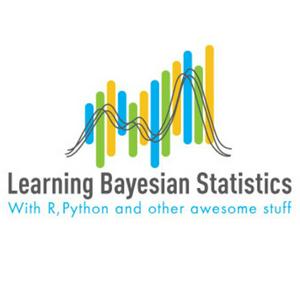• Support & get perks!
• Proudly sponsored by PyMC Labs! Get in touch at
[email protected]• Intro to Bayes and Advanced Regression courses (first 2 lessons free)
Our theme music is « Good Bayesian », by Baba Brinkman (feat MC Lars and Mega Ran). Check out his awesome work !
Chapters:
00:00 The Importance of Decision-Making in Data Science
06:41 From Philosophy to Bayesian Statistics
14:57 The Role of Soft Skills in Data Science
18:19 Understanding Decision Theory Workflows
22:43 Shifting Focus from Accuracy to Business Value
26:23 Leveraging PyTensor for Optimization
34:27 Applying Optimal Decision-Making in Industry
40:06 Understanding Utility Functions in Regulation
41:35 Introduction to Obeisance Decision Theory Workflow
42:33 Exploring Price Elasticity and Demand
45:54 Optimizing Profit through Bayesian Models
51:12 Risk Aversion and Utility Functions
57:18 Advanced Risk Management Techniques
01:01:08 Practical Applications of Bayesian Decision-Making
01:06:54 Future Directions in Bayesian Inference
01:10:16 The Quest for Better Inference Algorithms
01:15:01 Dinner with a Polymath: Herbert Simon
Thank you to my Patrons for making this episode possible!
Links from the show:
Come meet Alex at the Field of Play Conference in Manchester, UK, March 27, 2026! https://www.fieldofplay.co.uk/
A Bayesian decision theory workflow
Daniel's website, LinkedIn and GitHub
LBS #124 State Space Models & Structural Time Series, with Jesse Grabowski
LBS #123 BART & The Future of Bayesian Tools, with Osvaldo Martin
LBS #74 Optimizing NUTS and Developing the ZeroSumNormal Distribution, with Adrian Seyboldt
LBS #76 The Past, Present & Future of Stan, with Bob Carpenter


